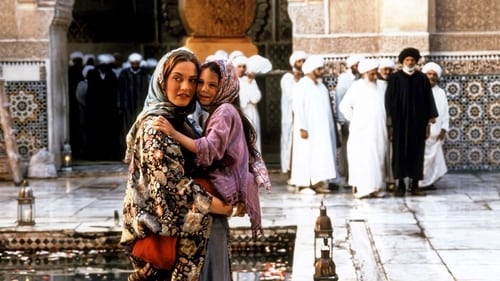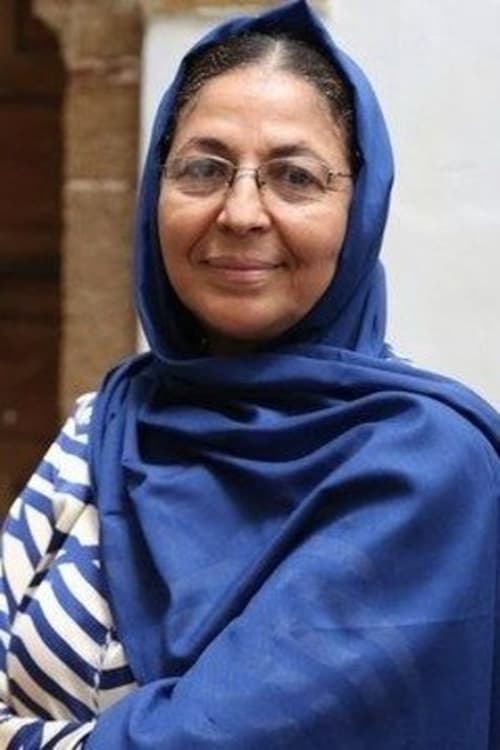Fadila Benmoussa
出生 : 1959-05-16, Marrakech, Morocco
略歴
Fadila Benmoussa is a Moroccan actress, born in Marrakesh in 1959. She started with the amateur theater in 1977, and moved to professionalism in 1981. Ever since that time she has become a familiar face to Moroccan viewers, especially with her "Marrakesh accent" that distinguishes her. She spent more than seven years with the Marrakech El-Wafa Ensemble, where she participated in several plays. Among her works are: The Clandestine (2010), Reserved Travel (2018) and Comfort and Tourism (2010).

"Al Ikhwan" is a social comedy that tells the story of 3 friends (Zreka, Charo, and Abdelssadek), from a slum in Casablanca, who consider themselves brothers. Each of them has their story, their concerns, their problems, but they all share the same thing: failure in their lives marked by poverty, unemployment and marginalization... By seeking to create a buzz at through a video shot by the 3 young people, they were polarized and manipulated because of their naivety and carelessness and thus found themselves pursued by a search warrant against them throughout the national territory. .

The film deals in a comic form with many social problems prevalent in Moroccan society, such as unemployment, immigration and begging, through the story of a father who could not get rid of the burden of his four children after failing to depend on themselves despite their old age, while unemployed children are forced to seek any solution, even if they are not correct, such as begging, fraud and drug use, in search of escape from their uncompromising father, who was a former boxer, and who does not hesitate to taunt them when he can.

Maati, owner of a hearse, is charged by the family of the deceased to transport the body of their relative from Marrakech to Tetouan for his burial following his will. Accompanied by his pregnant wife, the couple will face tragi-comical events and conflicting situations during their journey where they realize the greed and egoism of the family of the deceased whose only purpose is to sharing the inheritance ...

Farid lives with his mother in the medina. Still a bachelor, he draws a modest income by extorting vendors and small shop-owners by impersonating a policeman. Every day, he dons the uniform, a fake gun and handcuffs, puts on a show, and does the rounds – blissfully unaware that the real police force has him under surveillance, suspecting he might be a member of the criminal underground. Officer Bouchra is sent in, her mission to get close to him and gather information first-hand. Driss Mrini’s uproarious comedy had a successful run at the box office, and showcases the talent of a host of Moroccan film stars..

Lotfi, a census enumerator (counting demographics) or at least that's what he claims. Visits a neighborhood full of nutcases to interview and "count" them but everything quickly turns into a huge mess in a hilarious comedic frame full of twists about the Moroccan society..

Michel, a French national, lives in the Riad adjoining the house of Boujemâa and turns it into a guest house. The noise resulting from the tourist activities and songs of the rooster poisons the relations between the two neighbors.

Kenza
Kenza has lived alone since the death of her husband, a 60-year-old woman. All of her children are married and have concerns that have made their visits to her home decrease over time. To keep the children in constant touch with their mother, they agreed to give her a cell phone. Kenza, who wanted to see her three children every day, was not convinced of this solution, because she believes that her children's spouses are the owners of the idea and the decision. The three sons were unable to balance the needs of their small family with their mother who needed their help and care, so they decided to find a suitable husband for her.

A man convinces his brother-in-law to marry a foreign womanl to facilitate his obtainment of foreign nationality and improve their living conditions, but an unpleasant surprise awaits the brothers as the girl's scheme gradually unfolds.

The film was inspired by the life of football player Larbi Benbarek.

Zineb
Idris lives with his mother in an antique house in Marrakech; Idris is the only son of his mother who cares for him a lot, especially after the death of the father. Idris usually does not dare to take any step without the approval of his mother, who is working hard to marry her son through the traditional method, after completing forty years as a celibate, the mother tries to find the right girl to be the wife of her spoiled son

Mother
Souadia's monotonous life changes after an encounter with a police officer (Amin) next to an orange tree

Said, a Moroccan émigré in Switzerland,arrives one day in a village in the High Atlas. He announced from the start the reason for his arrival in the village. He did not come to go sightseeing or visit family, but his reasons are professional or rather pecuniary. Said tells villagers that he has come to recruit young people who, after an accelerated training in Europe, will become future athletes like Hicham El Guerrouj. Soon the inhabitants of the village, women and children, are interested. They all dream of changing the course of their lives.

Abdou is tricked into an experiment by American researchers and is suddenly propelled into a distant civilization, that of the Almohad dynasty who ruled the great Maghreb and Muslim Spain from 1147 to 1269 during the reign of Yaqub Al Mansour.

Latifa mother's
Suddenly, Omar a worn-out garment salesman, finds himself among the rich of the ancient city of Marrakech, finds himself among the rich of the ancient city of Marrakech, after he found a large sum of money in a pile of clothes, He decides to change his life, wearing a modern suit, and starts illegitimate with another girl, hoping to enjoy the happiness and tenderness that he missed during his marriage of Latifa.

Hotel Lady
In 1972, disenchanted about the dreary conventions of English life, 25-year-old Julia heads for Morocco with her daughters, six-year-old Lucy and precocious eight-year-old Bea.




